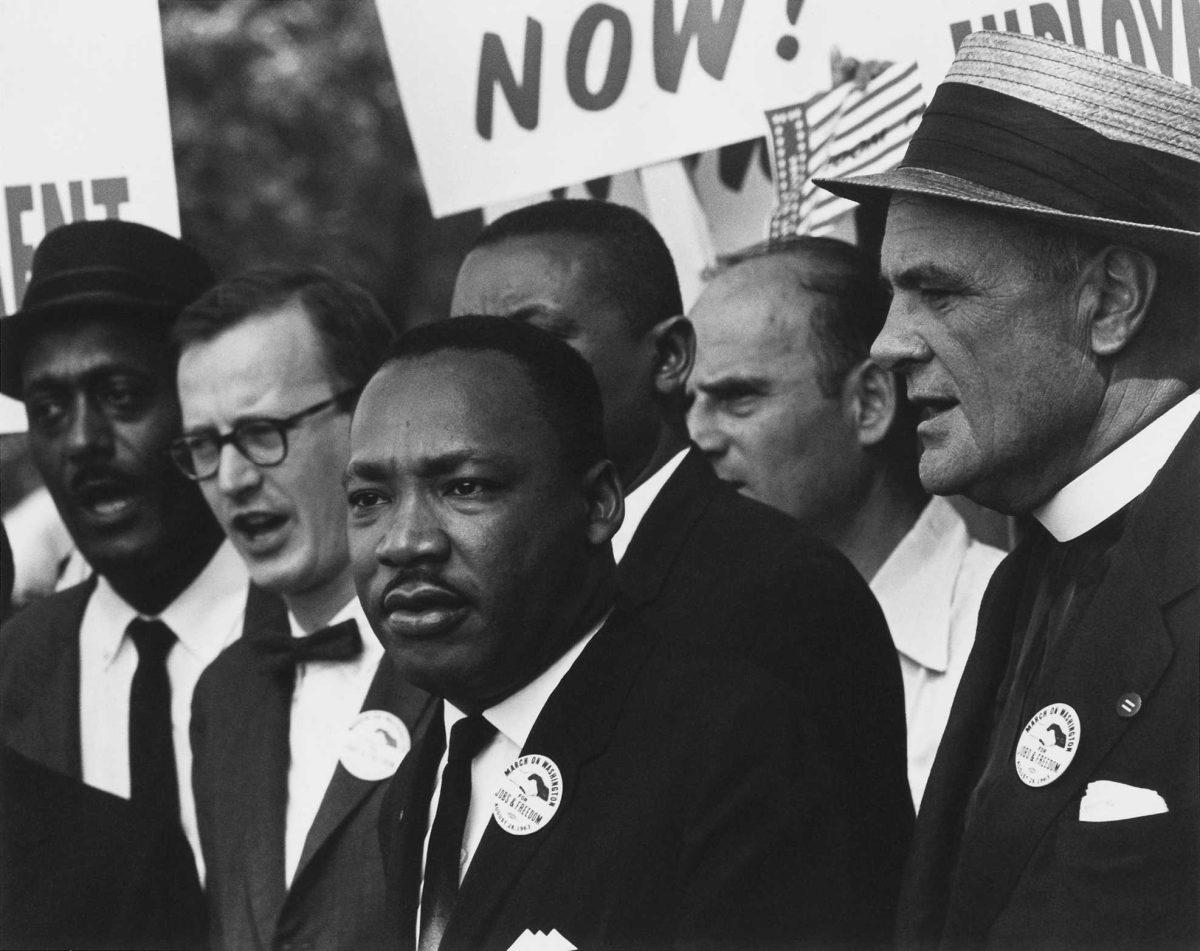It seems as though major steps are taken toward ending racism every 100 years. The Emancipation Proclamation freed the slaves in the 1860s. Dr. Martin Luther King Jr. led the civil rights movement in the 1960s. The 2060s are not far away, but the next steps to ending racism are nowhere in sight.
People will say its because of President Donald Trump’s influence, but he is not the most pressing concern. It is hard to cure a disease when the only thing focused on are the symptoms. The primary threat to complete equality for black Americans is complacency.
If King was to rise from his grave today and observe the black community, he would gladly hop right back in his casket. This doesn’t mean we haven’t made progress. It means most black Americans have settled for an off-brand product when the leaders before us paid blood, sweat and tears for the name brand. This generation is similar to a spoiled child living off mommy and daddy’s inheritance.
It’s not okay to march in the streets every time a white police officer kills a black man, but say nothing about 89.3 percent of murders among black Americans spur from black on black crime. So many young black Americans are growing up in bad situations.
Black Americans have the highest poverty rate of any ethnic group in the country, and 45 percent of these are children. So many black fathers do not want to take care of their children. It has reached a point where popular culture loves cracking jokes about not paying child support. What is so funny about forcing a parent to play a role in his or her child’s life?
Our generation uses methods like hip hop and rap to vent about the problems which plague the black community. I commend these artists for trying to be role models, but most of their music is violent, disrespectful and detrimental to the black community. It is virtually impossible to find a popular hip hop song that doesn’t talk about sex, drugs, guns and money.
Atlanta rapper T.I. said, “If you want to change the content of the music, change the environment.” At some point, the conversation has to go from what happens in the “hood” to preventing these things from happening in the hood. Most of the mainstream rap artists influence comes from their music. If most of their songs talk about sex, drugs, guns and money all the time, they’re shooting bullets at King’s legacy. We deserve better.
Every February, black Americans get caught up in the “I Have A Dream Speech,” but fail to realize this is how King feared his dream would become a nightmare. Earlier in his speech, King said, “No, we are not satisfied and we will not be satisfied until justice rolls down like the waters and righteousness like a mighty stream.” The fight for justice is one of the goals King had for all black Americans, but it has yet to be accomplished. The lack of a leader like King has allowed some of our worst nightmares to start reappearing.
The Delta Kappa Epsilon fraternity at the University was shut down in January, but hazing led to their demise, not their offensive and often racist game day signs. In Georgia, nearly 80 percent of black American votes were moved to a “pending” status because of a ridiculous law.
Racist marches like the ones in Charlottesville and Portland are sprouting out of nowhere, and the KKK still exists. Former LSU President Troy H. Middleton, who died in 1976, still has his name on the University’s library despite his outwardly racist past. To put a cherry on top, President Trump’s lack of action is reviving some of our nation’s worst qualities.
Our nation’s issues with racism and equality are like cotton thistles. Most people mow down cotton thistles because they don’t want to deal with its thorns. However, mowing them down will spread its seeds further and allow it to grow back stronger. Although the thorns can be painful, we must dig our problems up from their roots and dispose of them. King did it this way, but people have mowed over racism and equality issues since his assassination.
CNN political commentator Symone Sanders came to the University in January to talk about King. Sanders described King as a “radical revolutionary.” She defined a “radical revolutionary” as someone who is not afraid to push the buttons no matter who or what stands in their way.
The black community has not had a powerful “radical revolutionary” since King. Not even former President Obama fits in this category. Obama will be remembered as the culmination to all the sacrifices our past generations made for equality, but not as a radical revolutionary for black Americans. His job was never to fight just for black people. It was naive to think Obama was going to be the one to do this when he was president of all Americans, not just black Americans. Black Americans need someone to pick up were King left off.
Although this generation has been a disappointment, it’s not over yet. Past generations have overcome far greater tribulations, but they did it united. The black community has leaders, but they can’t be afraid to say things that may not be politically correct. The first step to solving a problem is recognizing there is one. The black community needs a wake up call — change is coming to America no matter if it is good or bad. In the words of rapper Childish Gambino, “Stay woke.”
Donald Fountain is a 21-year-old mass communication sophomore from Saint Francisville, Louisiana.







